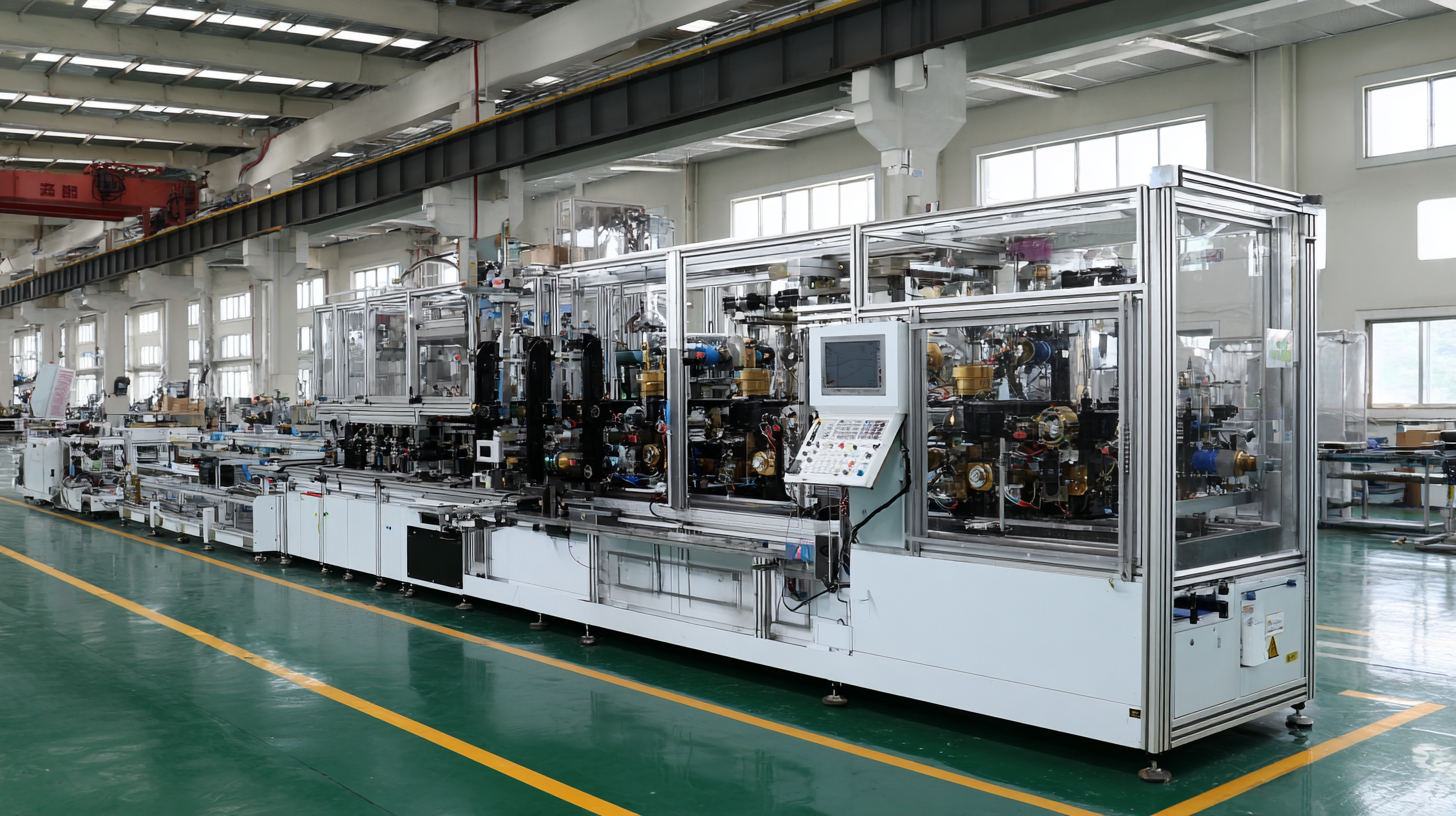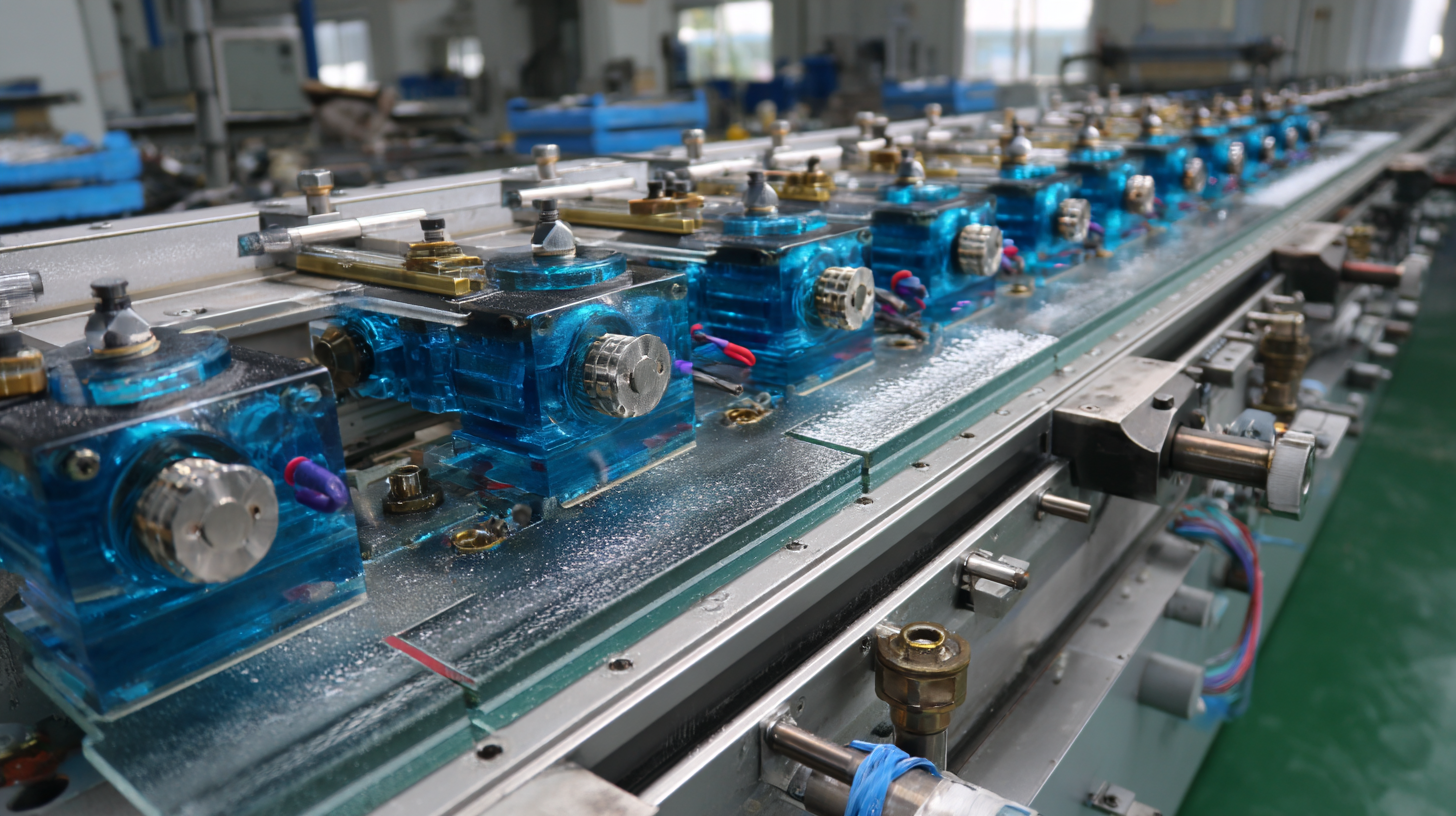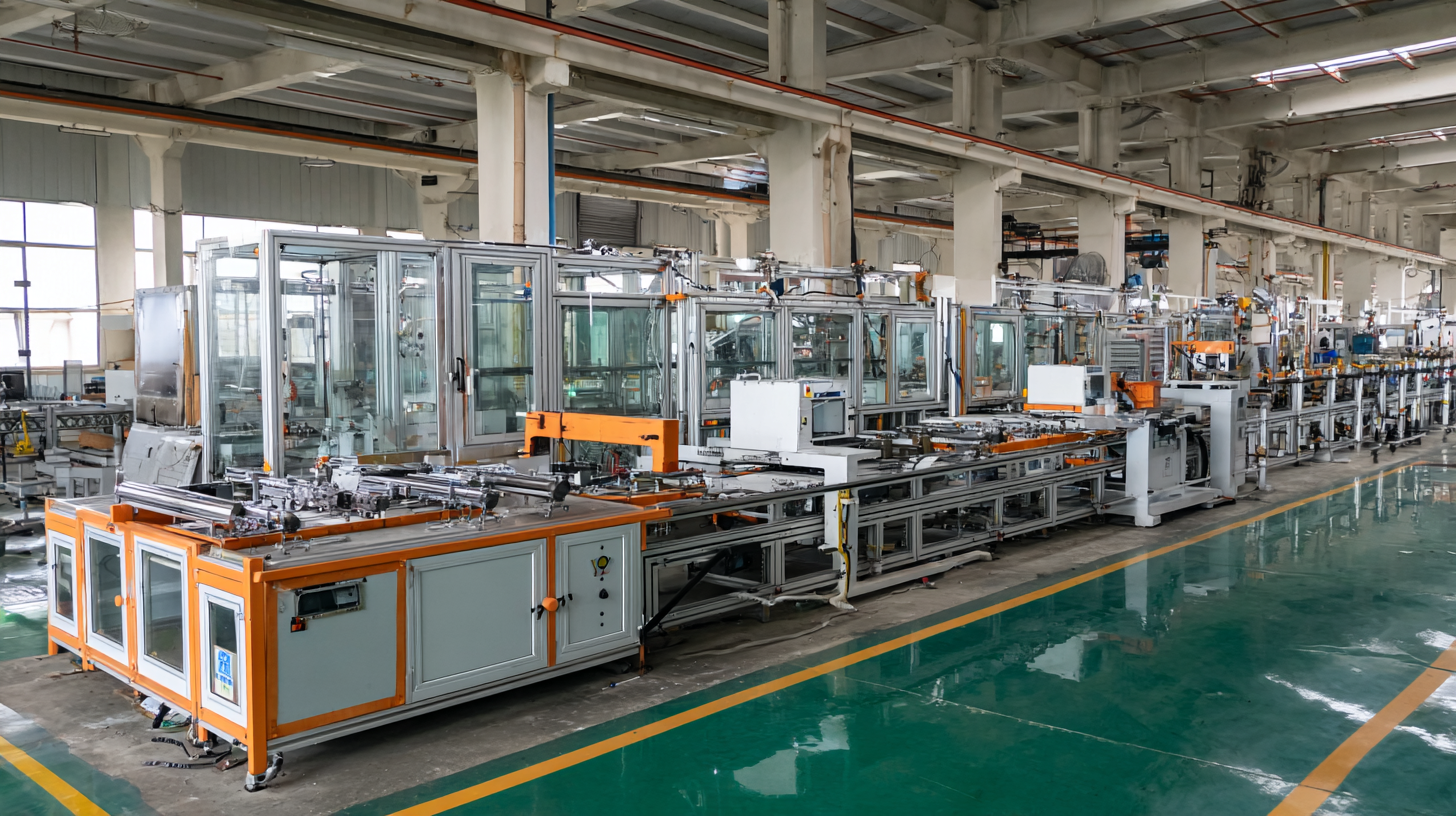Unleashing Excellence with the Best Glass Shape Beveling Machine Crafted in China for Global Trust
In the rapidly advancing world of glass manufacturing, efficiency and precision are paramount, particularly when it comes to shaping and finishing processes. One key player in this evolution is the Glass Shape Beveling Machine, which has become indispensable for producers seeking to enhance the aesthetic and functional aspects of glass products. According to industry reports, the global glass processing market is expected to reach USD 40 billion by 2025, driven by increasing demand in construction and automotive sectors.

As a result, the bezel technique has garnered attention for its ability to add value and enhance product quality. With China emerging as a powerhouse in manufacturing advanced glass processing machinery, including state-of-the-art beveling machines, these innovations are reshaping how industries approach glass design and production, earning trust on a global scale. The commitment to excellence and the strategic focus on quality assurance position Chinese manufacturers as leaders in catering to international markets, all while promising efficiency and reliability in the art of glass craftsmanship.
The Growing Demand for Glass Shape Beveling Machines in the Global Market by 2025
The global demand for glass shape beveling machines is experiencing significant growth, projected to escalate further by 2025. As industries continue to evolve, the need for precision-engineered glass products has surged, highlighting the importance of high-quality beveling machines that deliver flawless finishes. These machines not only enhance the aesthetic appeal of glass but also improve its functionality, making them indispensable in sectors such as architecture, automotive, and interior design.
China has emerged as a key player in the production of advanced glass shape beveling machines, leveraging cutting-edge technology and skilled craftsmanship. With global trust in Chinese manufacturing steadily increasing, businesses are seeking reliable machines that promise durability and efficiency. As the market expands, manufacturers are focusing on innovation, incorporating smart features and automation that cater to the unique needs of global clientele, setting a new standard for excellence in glass processing. This trend indicates a bright future for the glass industry, driven by the relentless pursuit of quality and precision in glass beveling.
Technological Advancements in Beveling Machinery and Their Impact on Efficiency
The evolution of beveling machinery has significantly changed the landscape of glass processing, enhancing efficiency and precision in manufacturing. With the advent of advanced technologies, manufacturers can now achieve superior bevel edges that not only improve the aesthetic appeal of glass products but also ensure structural integrity.
 The integration of automated systems has streamlined operations, reducing labor costs and minimizing errors. As industries worldwide seek to maximize productivity, investing in cutting-edge beveling machines becomes paramount.
The integration of automated systems has streamlined operations, reducing labor costs and minimizing errors. As industries worldwide seek to maximize productivity, investing in cutting-edge beveling machines becomes paramount.
Tip: When selecting a beveling machine, consider the complexity of the shapes required and the volume of production. A machine that balances manual options with automated capabilities can provide versatility and efficiency in your operations.
In conjunction with advancements in beveling technology, continuous improvements in related fields like plasma cutting and welding further boost productivity. These innovations allow for quicker turnarounds and greater flexibility in design applications, ultimately supporting the growing demands of the market. By staying abreast of industry trends and adopting the latest machinery, businesses can remain competitive and maximize their output.
Tip: Regular maintenance and training for operators can greatly enhance the deployment of new technologies, ensuring that your machines operate at peak performance.
Analyzing the Competitive Landscape of Chinese Manufacturers in Glass Beveling
The competitive landscape of glass beveling machine manufacturers in China is increasingly significant as industries worldwide look for reliable and high-quality production solutions. With the booming demand for TFT-LCD glass substrates, which are essential for the electronic display industry, China's manufacturers are stepping up to meet global standards. This shift is driven by the necessity for precision in production that parallels semiconductor manufacturing, indicating the critical role these machines play in maintaining the supply chain's integrity.
Chinese manufacturers are leveraging advanced technologies to enhance the capabilities of glass beveling machines, positioning themselves as trusted partners in the global market. As the production of TFT-LCD glass substrates requires stringent quality control and innovative manufacturing processes, the emphasis on superior machine craftmanship becomes paramount. This focus not only reinforces China’s status as a leading manufacturer but also ensures that their glass beveling machines continue to adapt to the evolving needs of various industries, thus fostering international trust and collaboration.

Market Trends: Sustainable Practices in Glass Shape Beveling Production
In recent years, the glass shape beveling industry has witnessed a significant shift towards sustainable practices, propelled by increasing environmental awareness and regulations. According to a report by MarketsandMarkets, the global green glass market is projected to grow at a CAGR of 4.5% from 2021 to 2026, highlighting the rising demand for eco-friendly production methods. This trend is not only driven by consumer preferences but also by manufacturers seeking to reduce operational costs and enhance their brand reputation through sustainability initiatives.
Implementing energy-efficient technologies and utilizing recycled materials in glass shape beveling processes are key strategies that industry players are adopting. The International Energy Agency (IEA) indicates that the glass manufacturing sector accounts for approximately 5% of global industrial energy consumption. By integrating advanced beveling machines that reduce energy usage and waste, manufacturers can significantly cut emissions and promote a circular economy. As global trust in sustainable practices grows, investing in green technologies becomes not just an ethical choice but a competitive advantage in the increasingly eco-conscious marketplace.
Unleashing Excellence with the Best Glass Shape Beveling Machine Crafted in China for Global Trust - Market Trends: Sustainable Practices in Glass Shape Beveling Production
| Country |
Annual Production (Units) |
Market Share (%) |
Sustainability Initiative |
Year of Implementation |
| China |
50000 |
30% |
Recycling Glass Production |
2021 |
| Germany |
23000 |
25% |
Energy-efficient Machinery |
2020 |
| Italy |
18000 |
15% |
Sustainable Sourcing Programs |
2019 |
| USA |
30000 |
20% |
Reduced Carbon Footprint Initiative |
2022 |
| Taiwan |
12000 |
10% |
Waste Reduction Techniques |
2021 |
Key Factors Driving Customer Trust in Chinese Beveling Machine Brands
The global glass processing industry is experiencing significant growth, and Chinese beveling machine brands are emerging as frontrunners in this market. According to a recent report by Research and Markets, the global glass beveling machine market is expected to reach $1.5 billion by 2026, driven by increasing demand for high-quality glass products in construction, automotive, and decorative applications. Customers are drawn to Chinese brands not only for competitive pricing but also for their continuous innovation and commitment to quality.
Key factors driving customer trust in Chinese beveling machine brands include robust manufacturing standards and international certifications. A study by Statista shows that around 70% of consumers consider certifications like ISO 9001 and CE mark as crucial indicators of product reliability. Additionally, many Chinese manufacturers are now adopting advanced technologies and automation in their production processes. This shift not only enhances machine performance but also aligns with global sustainability trends.
As a result, companies like Shanghai Tede have positioned themselves as trustworthy partners in the industry, consistently delivering machines that meet or exceed global standards.

Home
About Us
Products
UPVC PVC Window Machine
Aluminum Window Machine
Glass Cutting Machine
Glass Edging Machine
Insulating Glass Machine
Glass lifting machine
Glass Washing Machine
Glass Laminating Machine
Glass Sandblasting Machine
Glass Drilling Machine
CNC Glass Working Center
CNC Non-Metal Cutting Machine
The Other Glass Machinery
Application
Download
News
Contact Us

 The integration of automated systems has streamlined operations, reducing labor costs and minimizing errors. As industries worldwide seek to maximize productivity, investing in cutting-edge beveling machines becomes paramount.
The integration of automated systems has streamlined operations, reducing labor costs and minimizing errors. As industries worldwide seek to maximize productivity, investing in cutting-edge beveling machines becomes paramount.